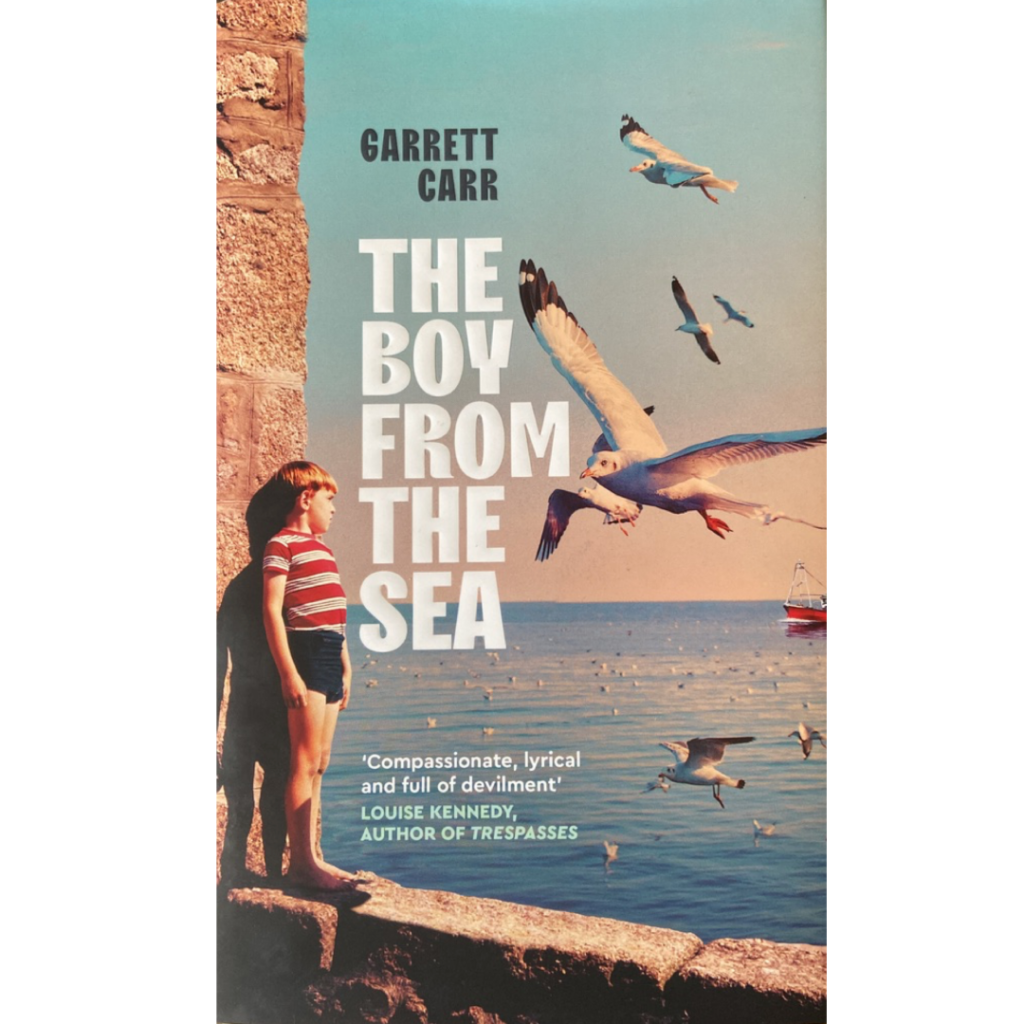
The Boy from the Sea is a debut of sorts from Carr. This is his first outing in adult fiction, having already published across non-fiction (The Rule of the Land: Walking Ireland’s Border (Faber)) and children’s (The Badness of Ballydog, Lost Dogs, Deep Deep Down (Simon & Schuster)).
We find ourselves in Killybegs, County Donegal, Ireland being brought a tale of the Bonnar family by the community. Carr delivers this novel in the first person plural (we/our), which emphasises the experience as that of a collective looking into the Bonnar household. A boy is found near to the sea and is adopted by Ambrose and Christine, already parents to Declan. What ensues is a sweep through the ages as the family wrangles with the world. We don’t quite know the precise changes in time (we start around the 70s/80s) but movements are signalled through the motif ‘the season changed’, which feels more appropriate than the labels of years: this is a fishing community and perhaps more relevant is when the storms are present or where fish are in their migrations.
One of the comments on the book’s cover describes this story as a ‘portrait of a dysfunctional family in a struggling town’. I agree, but I would also add that they start off functioning reasonably well. What arises in the story cautions against the perils of ego alongside financial instability. For Ambrose, there is a need to remain as skipper: not changing his ways or joining his colleagues who’s luck or judgement has proven better, at the eventual cost to both himself and his family. Christine’s sister, Phylis Lyons, is forced into a carer role, which also adds pressure onto the Bonnar’s. Neither Phylis nor Ambrose seem to be able to adapt appropriately to their challenges and it is left to Christine, foregoing her ego, to try and pick up the slack.
The boys, too, suffer from the household being stretched; Ambrose cannot always be there to anchor and guide. Even if he could, would it have had any effect? Whilst Brendan is the titular ‘Boy from the Sea’ (like its element, water: drifting, deep, unknowing, untied), Declan is certainly more the ‘Boy from the Land’ (resolutely certain, fate grounded and sealed, immovable). These oppositional forces are thematic in Carr’s novel; Killybegs being a coastal town where rock meets water and where brother by land and brother by sea erode away at one another. Such a depiction is beautifully rendered towards the end of the book where Declan searches for Brendan at the sea’s edge.
I really loved this book and felt so very invested in each of the characters. Everyone has their own story but functions within the community as a greater whole. I found Carr’s language and imagery able to transport me easily to Killybegs, as though I had heard or received the information organically, simply from walking around the place. There’s dry wit, sadness and celebration, and all of it transduced through the observations of the people of Killybegs.
Carr was also listed as one of The Observer’s debut authors to watch for 2025 and there are plenty of other positive reviews out there, if you need any more convincing as to the quality of this story!
D